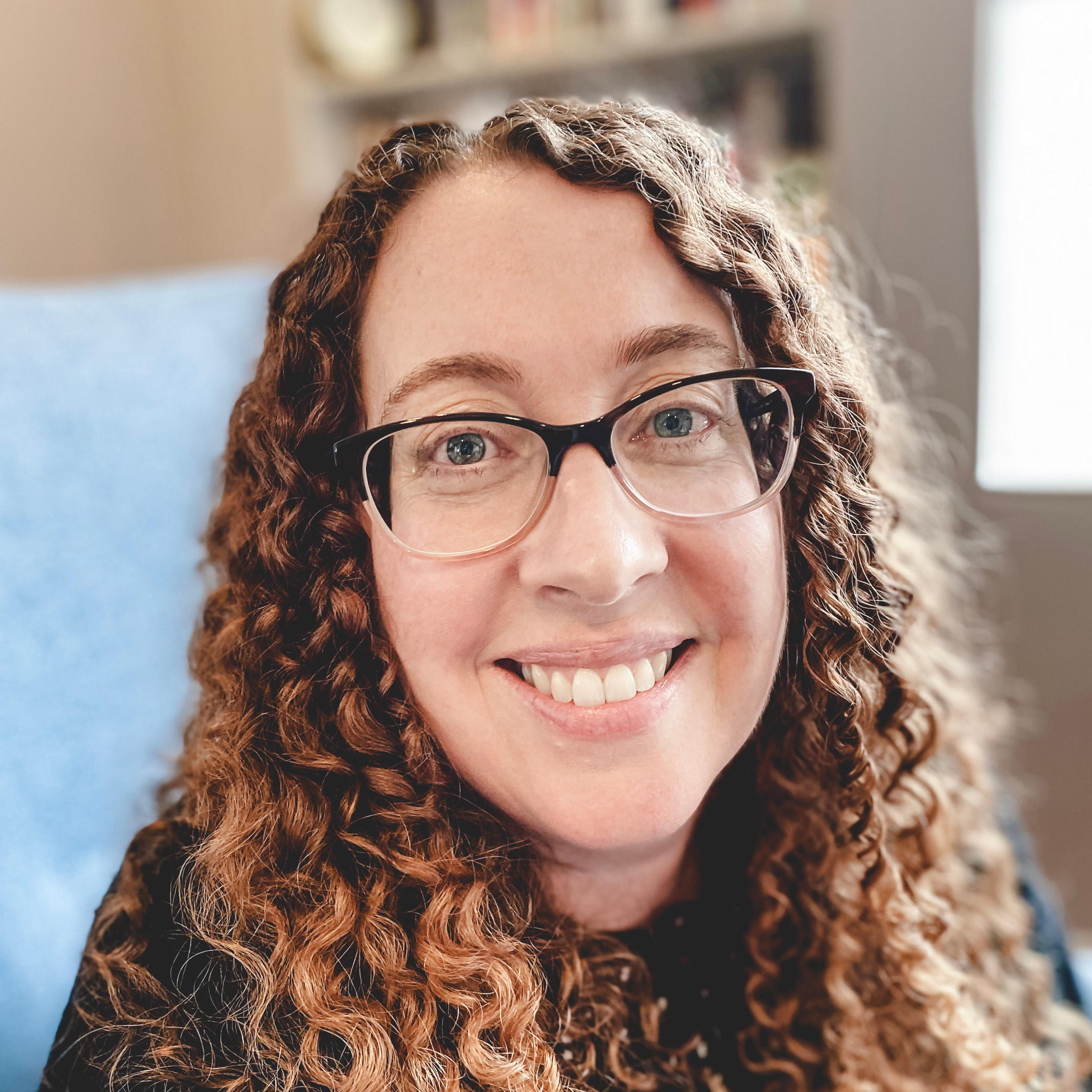Finding Support for Social Anxiety in Portland
Living with Social Anxiety can make everyday moments feel overwhelming, and it’s okay to need support—you’re not alone. MiResource is here to help, making it simple to connect with therapists in Portland for care that fits your life, both online and in-person. You’re in the right place to find understanding, trusted guidance, and a path forward at your pace.
An Overview of Social Anxiety
Social anxiety is an intense fear of being judged or embarrassed in social situations, which can make everyday activities—like meeting new people or speaking up—feel overwhelming. Left untreated, it can limit work, school, relationships, and quality of life, but it’s highly treatable. Therapy in Portland can help you build confidence and coping skills through approaches like cognitive behavioral strategies, gradual exposure, and supportive guidance.
Defining Social Anxiety
Social Anxiety is a common mental health condition where everyday interactions trigger intense fear of being judged, embarrassed, or rejected, leading to significant distress and avoidance. Hallmark symptoms include blushing, sweating, shaking, a racing heart, trouble speaking, and persistent worry before and after social situations. In Portland, this can show up as avoiding classes or meetings, skipping community events, struggling to order at a café, or turning down invitations and job opportunities. Authoritative sources like the National Institute of Mental Health (NIMH), the American Psychological Association (APA), and Mayo Clinic describe these patterns and note that effective treatments are available. If you’re curious about support options, consider exploring the broader Social Anxiety therapy resources on MiResource.
Benefits of Therapy for Social Anxiety
Therapy works to reduce social anxiety symptoms, build confidence, and make social situations feel manageable. Cognitive Behavioral Therapy (CBT) with exposure helps you challenge self-critical thoughts and gradually face feared situations, leading to stronger coping skills and less avoidance. Acceptance and Commitment Therapy (ACT) teaches you to unhook from anxious thoughts and take values-based actions, improving daily functioning and relationships. Mindfulness-based approaches and social skills training calm the nervous system, increase present-moment awareness, and strengthen communication so connections feel easier. Group therapy for social anxiety provides safe practice and support from peers, reinforcing that change is possible and building hope for a more connected life in Portland.
The Therapy Journey – What to Expect
Starting therapy for Social Anxiety in Portland begins with a compassionate initial assessment where you’ll share your experiences, triggers, and strengths, and your therapist will help clarify a personalized plan. Together, you’ll set realistic, collaborative goals—like building confidence in social situations or reducing avoidance—so progress feels steady and attainable. Ongoing sessions typically blend evidence-based approaches such as Cognitive Behavioral Therapy (CBT), exposure-based strategies, Acceptance and Commitment Therapy (ACT), and mindfulness skills, tailored to your pace and preferences. You can expect clear session structure, gentle practice between sessions, and regular check-ins to adjust what’s working for you. Our goal is to help you feel understood, supported, and gradually more comfortable navigating social moments in everyday Portland life.
Tips for Choosing the Right Therapist in Portland
On MiResource, enter Portland as your location and select Social Anxiety under condition to see relevant providers. Use the therapy approach filters (e.g., CBT, ACT, exposure therapy) to match how you like to work. Narrow results by your insurance plan to see who’s in-network. Choose your preferred language and availability, including in-person or telehealth and times like evenings or weekends. Refine further by Portland neighborhoods (e.g., Pearl District, Southeast, Northeast) and distance from you. Personal fit matters most—start exploring the directory, compare profiles, and reach out to a few promising options today.
Why a Local Portland Therapist Can Make a Difference
Portland’s creative, community-minded culture can be both welcoming and overwhelming when you live with Social Anxiety. From crowded Saturday Market stalls and Rose Festival events to intimate open-mic nights and activist gatherings, social expectations can feel high even in “keep it weird” spaces. A Portland therapist understands the city’s coffeehouse meetups, coworking culture, and inclusive LGBTQIA+ communities, tailoring exposure work that fits local norms and values. They can also help you navigate settings like Powell’s readings, PSU farmers market, or neighborhood block parties at a pace that builds real-world confidence.
Practicalities matter here: TriMet’s MAX, buses, and Streetcar make it easy to access care from neighborhoods like the Pearl, Alberta Arts, Hawthorne/Division, Sellwood, St. Johns, and Lents. Typical gray, rainy months can intensify avoidance, making regular in-person sessions a stabilizing routine and offering guided exposures in familiar places like Waterfront Park, OMSI, or Pioneer Courthouse Square. Local clinicians can schedule sessions around bridge traffic and bike commutes, and choose quieter offices off major corridors to reduce pre-session stress. In-person Portland care also supports graduated exposure in real contexts—ordering at a busy café, riding MAX at rush hour, or attending a small meetup—so gains translate to daily life.
Resources in Portland include: Multnomah County Mental Health Call Center 24/7 at 503-988-4888, Lines for Life at 800-923-4357 and YouthLine 877-968-8491 or text teen2teen to 839863, and NAMI Multnomah support groups and classes. For urgent needs, the Cascadia Behavioral Healthcare Urgent Walk-In Clinic, 4212 SE Division St, and the Unity Center for Behavioral Health for psychiatric emergencies. Emergency departments: OHSU Hospital ED, Providence Portland Medical Center ED, and Legacy Emanuel Medical Center ED. In an immediate crisis, call or text 988, or dial 911 for life-threatening emergencies.
Social Anxiety Therapy in Portland: FAQ Guide
When should I consider seeking help for Social Anxiety?
Seek help if your fear or worry in social situations persists or worsens, interferes with daily life, work or school, or relationships, or causes you to avoid events, calls, meetings, or friendships. It’s also a sign to reach out if you experience intense physical symptoms, ruminate for hours before/after interactions, need constant reassurance, or notice your world getting smaller. If you ever have thoughts of self-harm or feel unsafe, seek immediate help by calling 988 or going to the nearest emergency room. Early support can make a big difference, and you can choose in-person or virtual Social Anxiety therapy in Portland.
What if I don’t click with my therapist right away?
It’s normal not to click with the first therapist you meet—finding the right fit can take a few tries, and research shows a strong therapeutic alliance leads to better outcomes for Social Anxiety. You can switch at any time, and MiResource makes it easy to compare therapists in Portland by approach, insurance, and availability.
Does online therapy really work for Social Anxiety?
Yes—research shows online therapy, including CBT and exposure-based approaches, can effectively reduce Social Anxiety, and many people in Portland appreciate the privacy and scheduling flexibility of telehealth. Virtual sessions can make it easier to start treatment and practice skills between meetings, but some find it harder to do real-time exposures or read social cues over video. In-person therapy in Portland may be preferred if you want guided, real-world exposure exercises, local social skills groups, or if your symptoms are severe, complex, or co-occur with issues that benefit from closer monitoring. If technology, privacy at home, or reliable internet are concerns, in-person care can offer a more controlled and immersive setting.
How do I prepare for my first session?
- Jot down your goals and worries: note situations that trigger your anxiety, what you’ve already tried, and what you hope will feel easier in daily life.
- Handle logistics early: confirm the address or telehealth link, parking or transit, fees/insurance, and arrive 10–15 minutes early so you can settle in.
- Create a calming plan for before/after: practice a brief breathing exercise, bring soothing music, and schedule a few minutes of quiet time post-session.
- Bring essentials: ID and insurance/payment info, a list of medications, prior mental health records (if any), your questions, water, and a small comfort item.
- Know what to expect: a supportive intake focused on your history and current challenges, collaborative goal‑setting, education about social anxiety, and a plan that may include skills practice, gradual exposure, and between‑session exercises. You’ll never be pushed to share more than you’re ready for.
- Consider support options: ask about individual, group, or telehealth appointments and how family/partners might be included if helpful.
Questions to ask
- How experienced are you with Social Anxiety, and what approaches do you use (e.g., CBT, exposure, group work)?
- What will the first few sessions look like, and how do you set goals and measure progress?
- How do we handle panic or high anxiety during or between sessions?
- What kind of practice or “homework” should I expect, and how is it tailored?
- How often will we meet, for how long, and what are the costs and cancellation policies?
- Do you offer group options for Social Anxiety therapy in Portland?
What to bring
- Photo ID, insurance/payment details
- List of medications and relevant health history
- Notes about recent anxiety‑provoking situations and your strengths
- Your top questions and therapy goals
- Water, tissues, and a small grounding item (e.g., smooth stone, fidget)
Can therapy truly help with Social Anxiety?
Yes—decades of research show therapies like cognitive behavioral therapy (CBT), exposure-based approaches, and acceptance and commitment therapy (ACT) reliably reduce Social Anxiety and improve daily functioning. Many people experience less avoidance, greater confidence in conversations and groups, stronger relationships, and better performance at work or school. The key is consistency: regular sessions and practicing skills between appointments steadily retrain anxious patterns. In Portland, you can access evidence-based care and build a plan that matches your pace while staying committed to the process.












